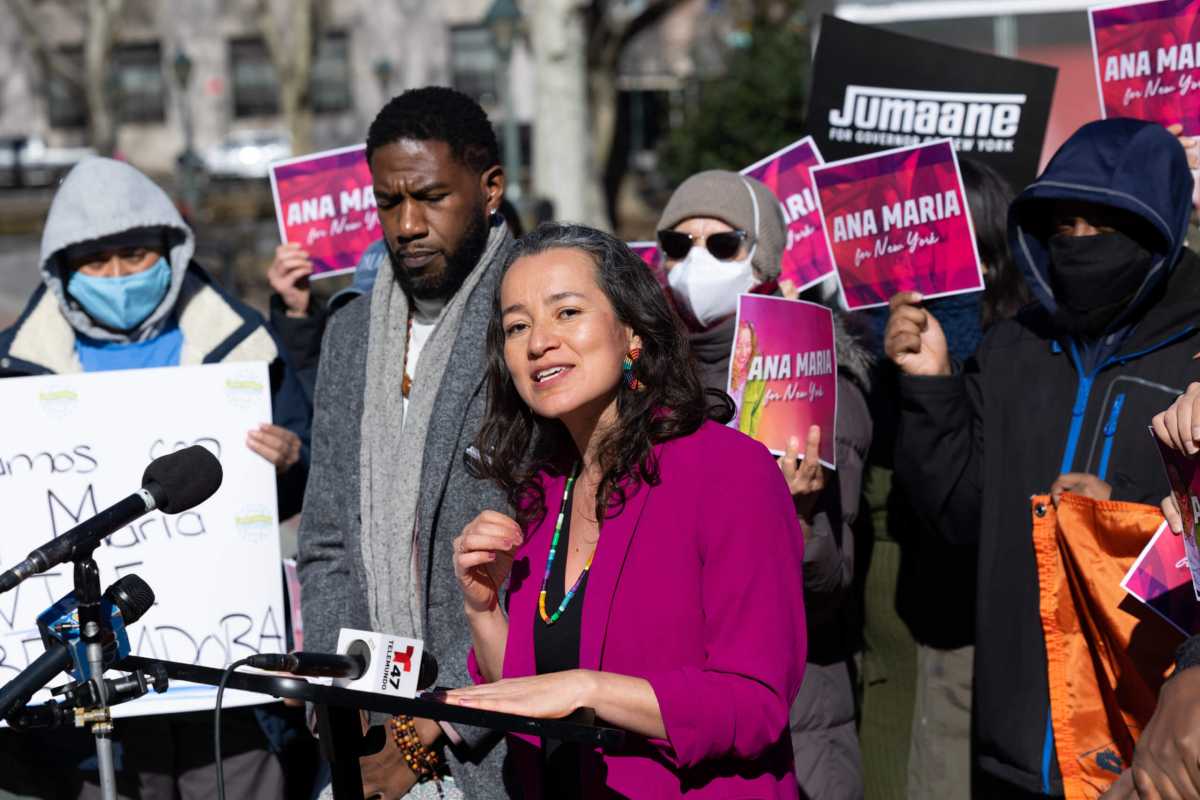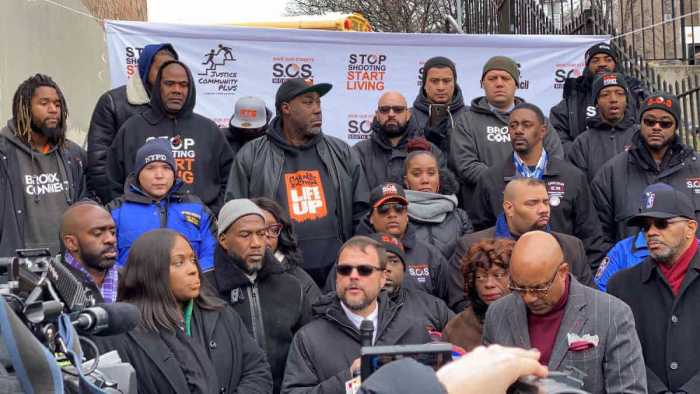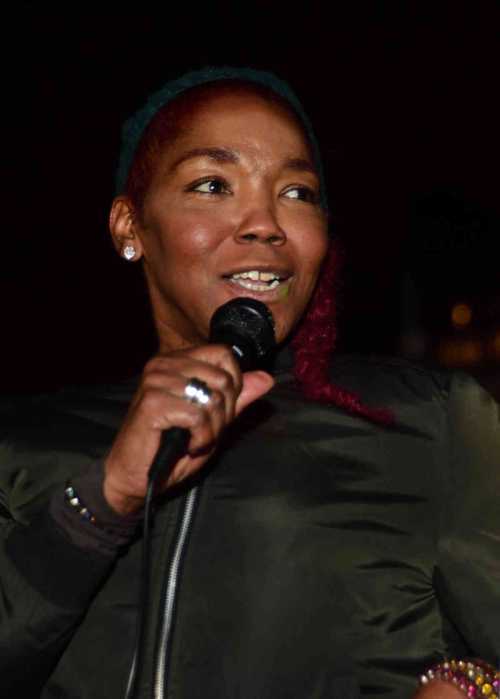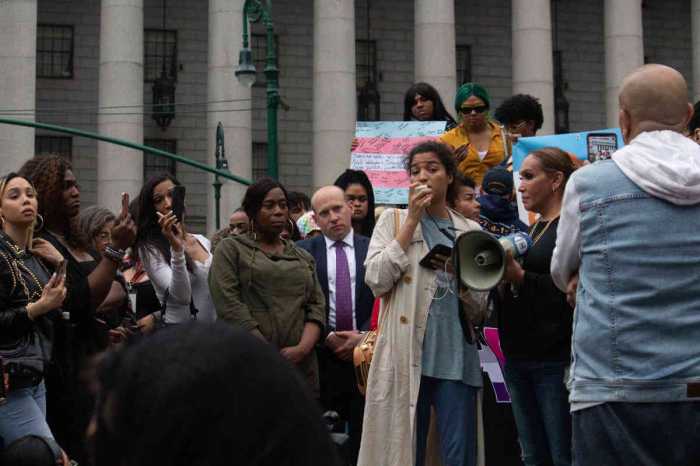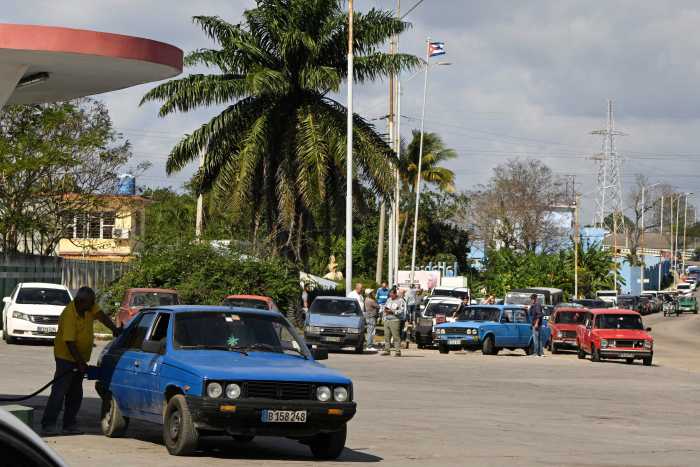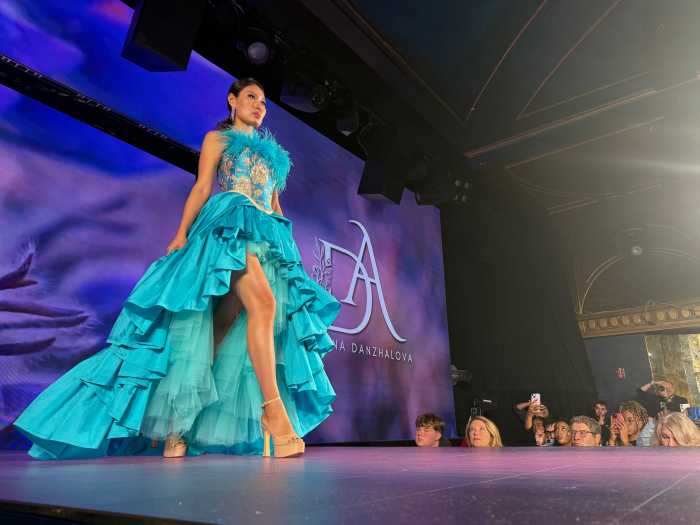For more than two decades, Ana María Archila has worked to support social and economic justice organizing efforts by immigrant, people of color, low-income, and LGBTQ communities — in New York and, in recent years, nationwide. For the average New York voter, however, Archila’s name and face are more likely recognizable for her impassioned September 2018 confrontation with then-Senator Jeff Flake at an elevator near his office, when she demanded that the Arizona Republican support further investigation of sexual assault allegations against Supreme Court nominee Brett Kavanaugh.
Now, Archila, an out bisexual immigrant from Colombia, is looking to bring her voice to the highest levels of state government as a candidate for lieutenant governor in the June 28 Democratic primary. The running mate in City Public Advocate Jumaane Williams’ bid for governor, she is facing off against Antonio Delgado, a former upstate member of Congress sworn in days ago as Governor Kathy Hochul’s lieutenant governor, and Diana Reyna, a former city councilmember who also served as deputy Brooklyn borough president under Mayor Eric Adams in his former role. Reyna is partnered in her race with Tom Suozzi, a Long Island congressmember challenging Hochul.
Born and raised in Bogotá, Archila came to the US at age 17 and attended Montclair State University in New Jersey. She began her career as an organizer at the Latin American Integration Center, a New York-based group founded by her aunt, human rights attorney Sara María Archila. After her aunt’s death, Archila assumed the leadership of LAIC, later merging it into Make the Road Walking to form Make the Road New York (MRNY), a leading immigrant rights group in the city.
Later, as co-executive director of the Center for Popular Democracy (CPD), which helps build progressive coalitions nationwide in support of immigrants, people of color, low-income communities, women, and LGBTQ people, Archila became a leading national voice on issues from immigration to healthcare access — lightning rod controversies during the Trump presidency.
The community-building work Archila did at these organizations, she explained, allowed a wide array of marginalized people “to be heard, to be visible.” The groups organized by MRNY and CPD work to give underserved communities the ability to “exercise collective power.”
Archila’s activism led her to Washington during the Kavanaugh nomination process. Her group — in tandem with others such as the Women’s March — occupied portions of the Capitol for 34 days. Though activists spoke urgently of their fears that a Trump court would threaten abortion rights and access to women’s healthcare, the allegations against Kavanaugh from Professor Christine Blasey Ford and others brought sexual assault to the fore. During the protests, many women shared their own experience as survivors.
Amidst that climate, Archila, for the first time, publicly discussed the sexual abuse she suffered as a small child at the hands of a 15-year-old. She relayed that account outside Flake’s Senate office, since he was one of the few Republicans that protesters felt might be reachable.
Several days later, as the Senate Judiciary Committee appeared set to approve Kavanaugh’s nomination, Archila met María Gallagher, a young activist who had also suffered sexual assault as a child. Gallagher convinced Archila to make a last ditch effort at swaying Flake, who had already announced he was prepared to advance the Kavanaugh nomination. Purely by chance, they ran into the senator as he was stepping onto an elevator to return to the Judiciary Committee hearing. What ensued was an encounter of several minutes caught on video in which the women told Flake of the abuse they suffered and pressed him to consider how he would feel if women in his family encountered similar abuse.
When the committee took up Kavanaugh’s nomination moments later, Flake conditioned his “yes” vote on an FBI inquiry into Ford’s allegations. That investigation, however, was limited in scope to her account, but not those from other women, and given a one-week deadline. Unsurprisingly, a cursory FBI inquiry followed, coming to no definitive conclusion on Ford’s charges.
Though Archila is proud to have pushed Flake as far as she did, she said the disappointing efforts by the FBI point up “how the criminal legal system has been so ill-equipped to explore sexual violence.”
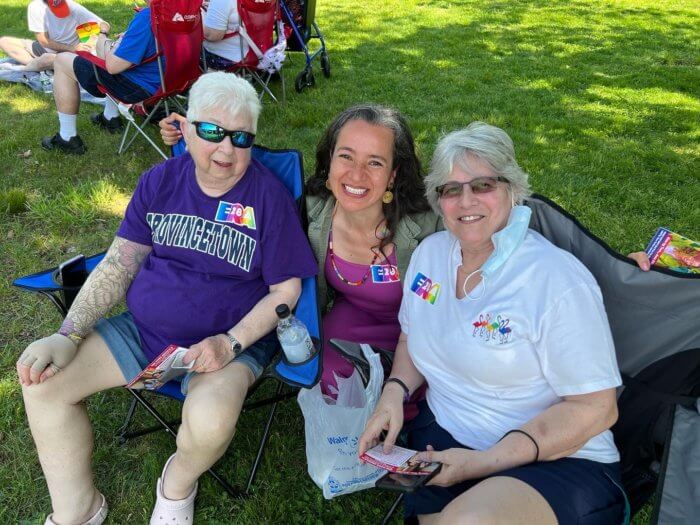
Early this year, the Working Families Party (WFP) reached out to Archila to gauge her willingness to run for lieutenant governor alongside its gubernatorial pick, Williams. Archila had just concluded her transition from her Center for Popular Democracy post and was struck by how fatigued many of the communities she worked with were in the wake of the Trump years. As she looked to the State Democratic Party, she saw a “coronation” of Hochul, who she argues “responds to the donor class,” with “communities typically left out being marginalized.”
“In order to make the case to my communities that our vote counts,” Archila explained, “I felt it was impossible to allow the same politics as usual to continue. We have to create space for our community.”
She agreed to the WFP request.
A major thrust of Archila’s campaign agenda is a fundamental rethinking of affordable housing efforts in New York. She supports the construction or preservation of one million affordable housing units, and argues that the 421-a program granting tax exemption to city developers who incorporate affordable housing into residential new builds fails to make a meaningful contribution on that score, instead contributing to neighborhood gentrification. Archila advocates a retooling of Empire State Development to focus on the creation of publicly-owned rental units and co-operatively-owned buildings like those created under the Mitchell-Lama program.
Like Williams, Archila supports enactment of the New York Health Act, a universal coverage plan sponsored by Manhattan Assemblymember Dick Gottfried and Bronx Senator Gustavo Rivera. She also advocates for the creation of new public hospitals and the provision of healthcare support for undocumented immigrants currently denied access to benefit programs.
On immigration issues more generally, Archila said there are many public benefits and programs that exclude undocumented residents, a situation that must be corrected.
Asked about her priorities for the LGBTQ community, Archila first mentioned “the concerted attack on transgender people” and voiced support for a $15 million transgender equity fund sought by advocates. Considerable work needs to be done, she said, in ensuring that schools statewide become truly accepting and supportive of queer youth. Preserving the state’s HIV support infrastructure, she said, is essential, especially given the continued high rates of infection and under-treatment in communities of color.
Archila supports the full decriminalization of sex work, but emphasized that the effort to combat sex trafficking must be maintained.
“I don’t think the two things are mutually exclusive,” she said.
Acknowledging the rise in crime since the onset of the COVID pandemic, Archila took pains to emphasize the need to “have an honest conversation about what public safety means.” She was particularly critical of gubernatorial hopeful Suozzi, who, she said, “has a one-word campaign speech: ‘Crime. Crime. Crime.’”
Archila mentioned the role the availability of guns plays, but emphasized that the link between poverty and crime must be addressed.
“There are proven approaches,” she said, to combating the underlying drivers of crime.
Polling ahead of the June 28 primary suggests that Hochul is in a commanding position in the race for governor, with Williams running behind Suozzi as well. It’s not clear that the horse race stacks up in the same order in the lieutenant governor’s contest. Delgado, despite three and a half years in Congress, only this month assumed his current post and is not yet well known statewide. Meanwhile, Archila has amassed an impressive array of endorsements, including City Comptroller Brad Lander, Congressmembers Nydia Velázquez and Jamaal Bowman, seven state senators, including Deputy Majority Leader Mike Gianaris, eight members of the Assembly, and nine city councilmembers.
Asked about the prospect of running on a ticket headed by Hochul, Archila stressed she must find common ground with whomever is the gubernatorial candidate, given the dangers of a Republican winning in November. At the same time, she made clear she would see her role as lieutenant governor as an independent one — supporting the governor where appropriate but robustly advocating for issues she sees as neglected.
“My mandate would be to talk about and elevate the issues that matter to people,” Archila said.

